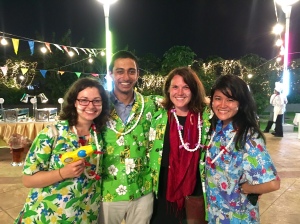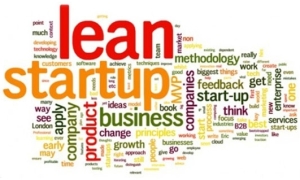By Cameron Scherer
 None of us expected the night to end with a water gun fight – but I’ll get there later.
None of us expected the night to end with a water gun fight – but I’ll get there later.
Last month, three classmates and I had the privilege of traveling to Bangkok, Thailand for the Global Social Venture Competition (GSVC) Global Finals. We did not compete, but attended the Finals as GSVC Fellows, tasked with developing strategies to make GSVC an even stronger program for aspiring social entrepreneurs.
The GSVC, managed by Berkeley-Haas and partner universities around the world, highlights the next generation of mission-driven business leaders. The competition provides entrant teams with mentorship, connections to industry experts, and seed funding to transform their promising ideas into real-world impact. For the past several months, I have gotten to know our global partners, to figure out how we can better serve entrants’ needs, and what lessons we can learn from their experiences.
After weeks of phone conversations, I finally had the opportunity to meet everybody in person during the three-day Global Finals and Think Big, Act Small symposium, a whirlwind of meetings, pitches, and speeches. Before the event formally started, we held a meeting with our global partners to collaboratively develop strategies to better position GSVC within the rapidly proliferating landscape of startup competitions. These discussions were energizing and we have an interesting set of opportunities and challenges ahead of us as we look towards the future.
Now onto the main event of the weekend–the competition. Never have I been so impressed by a group of peers. The solutions presented by the finalist teams were as diverse as the countries they represented, from a Korean company up-cycling leather car scraps into stylish bags to a team from Boston reinventing how we diagnose lung cancer. Selecting a winner among these innovative and mission-driven ventures was no easy task. Certainly all these teams traveled far and wide to win the grand prize, but what GSVC provides them is more than just prize money. GSVC is a supportive community where young social startups can work on their ventures, obtain valuable feedback from industry experts, and foster a network of like-minded entrepreneurs hoping to leverage business to make the world a better place.
The highlight of the entire trip, though admittedly biased – was traveling with my three fellow Fellows (ha) – Mitul Bhat, Vanessa Pau, and Claire Markham (all FTMBA ’17) in and around Thailand. Of course, you can’t really go wrong with a trip of Berkeley-Haas students, but I could not ask for a more fun, inspiring, and kind group of three.
And, oh yeah, the water fight.
The final night, after the awards were announced, we celebrated the Thai New Year Songkran with bright colored shirts and toy water guns. Instantaneously, job titles and who won or lost became irrelevant, as we darted between tables, ready to attack an unsuspecting friend.
I couldn’t help but wonder how many conferences end this way? I was struck then, as I was all weekend, by the value of holding the GSVC in Thailand: not only do we get to hear from so many new voices when we travel abroad, but also be reminded that letting loose and having fun might just be the best way to celebrate the incredible accomplishments – and futures – of all the participating teams.
The 2016 GSVC Global Finals were held in Bangkok, Thailand, April 1-2, 2016. For more information about the event and competing teams, visit: http://haas.org/1WIPxH3

 The first and successful phase of ACRes, led by founding co-chairs Professor
The first and successful phase of ACRes, led by founding co-chairs Professor  Joe Dougherty, Partner and West Coast Leader,
Joe Dougherty, Partner and West Coast Leader, 

 I am sure I am not the only one struggling a bit to feel holiday cheer given recent events. But I consider myself incredibly fortunate. I get to come to campus every day and work with talented, visionary Haas MBAs and other Cal students who are absolutely determined to solve some of the toughest problems facing society.
I am sure I am not the only one struggling a bit to feel holiday cheer given recent events. But I consider myself incredibly fortunate. I get to come to campus every day and work with talented, visionary Haas MBAs and other Cal students who are absolutely determined to solve some of the toughest problems facing society.
 Galen, BS 84, MBA 88
Galen, BS 84, MBA 88

